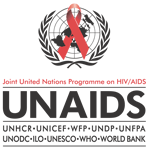|
Topic:
HIV/AIDS: How This Epidemic Affects the
Mental Health of the World
How has the AIDS Epidemic Affected the
Mental Health of the World? The World
AIDS Campaign 2003 continues to focus on
stigma and discrimination under the
slogan Live and let live…. HIV and AIDS
can touch raw nerves in all our
communities. The stigma of HIV and AIDS
relates to deep taboos within society.
For many the disease has a strong
association with prolonged illness,
death, sex and drug use -- issues that
many of us find difficult to talk about
openly. Along with general discomfort
about discussing these 'taboo' issues,
many communities are also dealing with
high levels of ignorance, denial, fear
and intolerance about the disease itself.
This potent combination can lead to
rejection and even aggression against
people living with HIV. As a result,
people with HIV have been disowned by
their families, fired from their jobs,
asked to leave their homes. They can face
discrimination in receiving medical care.
In extreme cases they have even been
physically attacked.
Stigma and discrimination can lead to
depression, lack of self-worth and
despair for people living with HIV. But
people living with the disease are not
the only ones endangered by this fear and
prejudice.
Negative attitudes about HIV can
create a climate in which people become
more afraid of the stigma and
discrimination associated with the
disease than of the disease itself. When
fear and discrimination prevail, people
may choose to ignore the possibility that
they may be HIV-positive - even if they
know they have taken risks. And people
may decide not to take measures to
protect themselves in fear that in doing
so they could be associating themselves
with HIV. All of this helps to create an
environment in which the disease can more
easily spread.
This year's World AIDS Campaign
encourages both individuals and
institutions to reflect on how they
respond to those living with HIV and
AIDS. With challenging posters and
television images the campaign clearly
shows how the most painful symptoms of
HIV and AIDS are often the reactions of
others. When someone feels safe within
their own community, they are more likely
to take responsibility for their HIV
status. This is why it is so important
for all of us to examine our own
attitudes. We need to ask ourselves: are
we helping to create an environment where
people can take responsibility for
themselves and others? Or do our
attitudes contribute to an environment of
shame, fear and denial that prevents
people from taking action? Only by
confronting stigma and discrimination
across the world will the fight against
HIV/AIDS be won.
Live and let live. Help us fight fear,
shame, ignorance and injustice worldwide.
(source:
www.unaids.org)
Guest: Mandee S. Rowley, MC, CAC, NCC
Mandee Rowley received her bachelor of
arts in psychology and religious studies
at Arizona State University in 2000, then
received her Master's in Counseling at
Arizona State University in 2003. She has
had a desire to work with people with
HIV/AIDS since taking a class during her
undergraduate years on HIV/AIDS 101 -
basically all aspects of HIV,
medical/physiological, legal, historical,
social, and psychosocial.
During her graduate studies she had the
opportunity to do her internship at
Phoenix Shanti Group, a local AIDS
service organization in the valley. When
she completed her studies and became
certified, the agency hired her on as a
behavioral health therapist. She
currently is involved in providing both
individual and group counseling to people
who are infected or affected by HIV/AIDS. |
